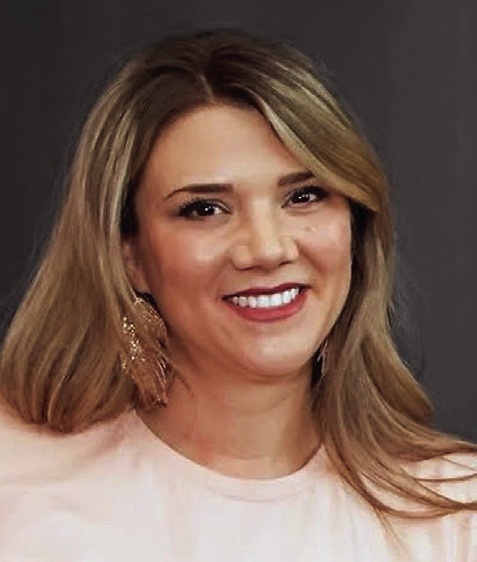While there are hundreds of thousands of therapists across the U.S. offering their services, finding someone you like takes dedicated effort, especially if you've never seen a therapist before.
One local therapist offers suggestions and guidance for finding a counselor who can help navigate your mental health journey.
Jen Smith, owner of Therapeutic Solutions in Macomb, has been a part of the field since 2006, after receiving her undergraduate degree.
According to Smith, one of the biggest barriers to people seeking treatment, in her opinion, is the high demand of people who are seeking counseling compared to the number of counselors available. This is true nationwide, but can also be challenging in rural communities, she added. Another challenge that individuals seeking treatment might face is finding that 'right fit' with a therapist.
'I think it's difficult to know how you'll click with a therapist until having several sessions with them,' Smith added.
'Our office manager at Therapeutic Solutions does a good job of getting a read of the person and then setting them up with a therapist she feels will be compatible.'
And if it's not the right fit, then what?
'This is probably the hardest part as it can be awkward telling another person that it's not working out,' she shared. 'I would encourage someone who doesn't feel like it's working to try to define what it is that they are lacking in the interaction and then ask for that,' she explained.
'And if they feel that they just don't like the therapist or the approach, it is likely time to move on. Time-after-time, researchers have proven that the most important thing in the likelihood of success in the therapeutic relationship is how much the client connects with the therapist and feels that their therapist believes in them and genuinely cares about the outcome.'
If an individual is having thoughts of suicide, even if they have a therapist they see regularly, Smith said to contact the national suicide hotline (988), which is available 24/7/365.
An emergency room, crisis center or clinic that allows walkins is another good avenue to take if someone feels as if they might harm themselves. Calling 911 is also an option, she noted, particularly if someone is in dire need of immediate assistance and intervention.
'Having someone talk about what they are facing is probably one of the first and most important things. Talking about what they're feeling and processing their emotions can be very powerful,' Smith pointed out. 'And in therapy, having your client sort these feeling out, coming up with a plan and developing some hope that things will improve is crucial to someone's well-being. Identifying the issues and strategies for improving symptoms and circumstances is also a critical part of healing and recovery.'
While family members and friends may feel helpless, there are resources, such as the 988 lifeline, available, along with information available online. Smith noted that where family members often feel most helpless or overwhelmed it's because someone cannot be forced to seek help or receive medical intervention.
'Unless the person is an imminent danger and needs hospitalization, we can't make someone go to therapy or seek emergency assistance,' she shared. 'What a loved one or friend can do is to listen and offer to help them schedule an appointment or seek help and accompany them to an appointment or ER visit. If someone you know is struggling, keep trying to be present and continue to reach out to offer help; however, you must also protect your well-being and boundaries.
'If you've lost someone to suicide, it can be really tough.
There are a lot of emotions and feelings involved. There's often a lot of anger, along with the grief,' Smith concluded.
'By seeing a counselor or taking part in support groups, you can allow yourself to express your feelings with less guilt or shame.'
In addition to the 988 lifeline, 988 offers loss survivors information. Learn more at 988lifeline.org/help-yourself/ loss-survivors. The American Foundation for Suicide Prevention also provides information regarding support groups at afsp.org/find-a-support-group.

Jen Smith, owner of Therapeutic Solutions








